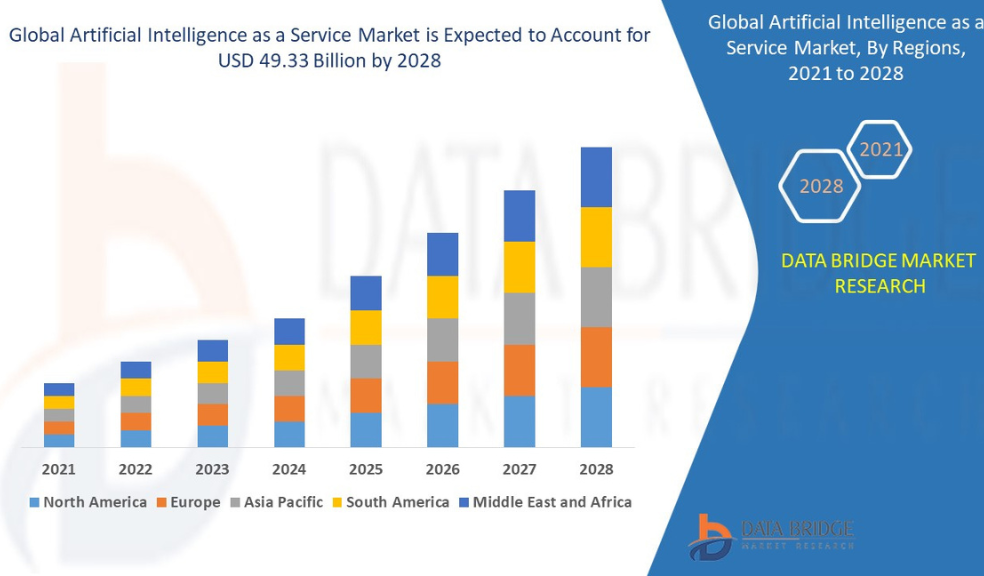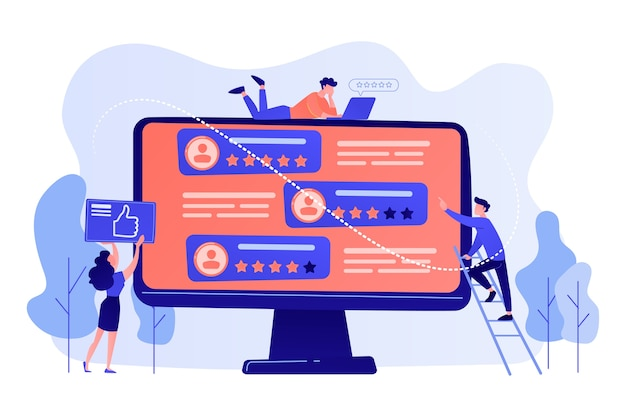
Why Businesses Are Turning to Artificial Intelligence as a Service (AIaaS) Instead of Building In-House AI Solutions
- Book My Author
- Technology
- 2025-09-30 12:20:33
- 967K
Introduction
Artificial Intelligence (AI) has transitioned from being a futuristic concept to a mainstream technology reshaping industries worldwide. From predictive analytics and natural language processing to computer vision and robotic process automation, AI’s potential is undeniable. However, the way businesses adopt AI has been changing dramatically. Rather than building AI capabilities entirely in-house, many organizations are now embracing Artificial Intelligence as a Service (AIaaS) - a model where cloud providers deliver AI tools and frameworks as ready-to-use services.
Definition
Artificial Intelligence as a Service (AIaaS) is a cloud-based offering that provides access to AI tools, models and capabilities - such as machine learning, natural language processing and computer vision - through subscription or pay-as-you-go models. It allows businesses and developers to integrate AI into their applications without needing deep expertise, heavy infrastructure or large upfront investment, making advanced AI technologies more accessible, scalable and cost-efficient.
The Traditional Approach: Building AI In-House
In-house AI development often requires massive upfront investments in infrastructure, talent, and research. Companies must:
- Hire scarce talent – Machine learning engineers, data scientists, and AI researchers are in high demand, and salaries can run into six figures. Recruiting and retaining this talent is a challenge even for large enterprises.
- Build infrastructure – Training deep learning models requires specialized hardware like GPUs and TPUs. Procuring, maintaining, and scaling this infrastructure can be prohibitively expensive.
- Develop data pipelines – AI systems depend heavily on large, clean, well-structured datasets. Establishing data collection, labeling, and governance frameworks takes significant time and expertise.
- Stay updated – AI evolves rapidly, with new frameworks, algorithms, and best practices emerging constantly. Staying competitive requires continuous research and retooling.
While building AI internally offers maximum control and customization, the cost, complexity, and time-to-value often outweigh the benefits, especially for small and mid-sized businesses. This reality has paved the way for AIaaS.
What Is AIaaS?
Artificial Intelligence as a Service is a cloud-based offering that allows businesses to access AI capabilities on demand without needing to build them from scratch. Just as Software as a Service (SaaS) provides applications via subscription, AIaaS delivers machine learning, natural language processing, computer vision, and other AI technologies through APIs, platforms, and pre-trained models.
Leading providers such as Amazon Web Services (AWS), Microsoft Azure, Google Cloud, and IBM Watson offer AIaaS solutions, ranging from chatbots and translation services to advanced predictive analytics and image recognition. These services are scalable, flexible, and priced according to usage, making them accessible to organizations of all sizes.
Why Businesses Prefer AIaaS Over In-House Solutions
1. Lower Costs and Reduced Risk
Building AI from scratch requires multi-million-dollar investments in infrastructure and talent. For many companies, especially startups and SMBs, these costs are unrealistic. AIaaS operates on a pay-as-you-go model, allowing businesses to experiment with AI at a fraction of the cost. This lowers financial risk and makes AI adoption feasible even with limited budgets.
2. Faster Time-to-Market
Developing custom AI solutions can take months or even years. AIaaS offers pre-built models and APIs that can be integrated into applications within days or weeks. For example, a company can quickly add voice recognition, customer service chatbots, or image classification to its platform without building these capabilities internally. Speed is a competitive advantage, and AIaaS accelerates innovation cycles dramatically.
3. Access to Advanced AI Without Expert Teams
AIaaS democratizes AI by removing the need for highly specialized teams. Even businesses without dedicated data science departments can leverage cutting-edge machine learning models. Providers like Google’s Vertex AI or Azure Cognitive Services abstract away much of the complexity, making AI accessible to non-experts.
4. Scalability and Flexibility
AI workloads can be unpredictable. Training a machine learning model may require massive computing power one week and almost none the next. AIaaS allows businesses to scale resources up or down instantly. This elasticity is nearly impossible with in-house infrastructure, where capacity planning and hardware costs can become bottlenecks.
5. Continuous Innovation from Providers
AIaaS providers continuously update their offerings with the latest advancements in machine learning and deep learning. Instead of investing heavily to keep pace with research, businesses can benefit automatically from these improvements. For example, when a provider enhances its natural language processing engine, customers gain access to improved accuracy without making internal changes.
6. Focus on Core Business Goals
By outsourcing AI development to AIaaS platforms, companies can concentrate on what truly differentiates them. A healthcare company, for instance, can focus on patient care rather than building machine learning algorithms for medical imaging. This strategic alignment allows businesses to leverage AI as a tool rather than a distraction.
Use Cases of AIaaS Across Industries
AIaaS is not limited to a single sector; its versatility makes it relevant across industries:
- Retail & E-commerce – Personalized product recommendations, demand forecasting, inventory optimization, and customer support chatbots.
- Healthcare – Image recognition for diagnostics, predictive analytics for patient outcomes, and automated medical transcription.
- Finance – Fraud detection, credit scoring, algorithmic trading, and risk assessment.
- Manufacturing – Predictive maintenance, quality control through computer vision, and supply chain optimization.
- Marketing & Advertising – Customer segmentation, campaign optimization, and sentiment analysis.
- Transportation & Logistics – Route optimization, autonomous vehicle training, and demand prediction.
These examples show how AIaaS provides ready-to-use solutions tailored to real-world problems, reducing barriers to adoption.
Challenges and Considerations with AIaaS
While AIaaS brings many advantages, it is not without challenges:
- Data Privacy and Security – Sending sensitive data to cloud providers can raise compliance and privacy concerns, especially in regulated industries like healthcare and finance.
- Vendor Lock-In – Relying too heavily on a single provider can make it difficult to switch platforms later. Businesses must carefully evaluate long-term strategies.
- Limited Customization – Pre-built models may not perfectly fit unique use cases. Some businesses may still need hybrid approaches combining AIaaS with in-house development.
- Cost Over Time – While AIaaS is cheaper upfront, ongoing usage fees can add up. Organizations must monitor costs carefully.
Despite these concerns, the benefits often outweigh the drawbacks, particularly for companies seeking rapid adoption and scalability.
The Future of AIaaS
The AIaaS market is expanding rapidly. According to industry forecasts, it is expected to grow by double digits annually over the next decade, driven by increasing demand for AI capabilities across sectors. The future of AIaaS will likely include:
- More Customizable Solutions – Providers will offer modular services that businesses can tailor to niche applications.
- Edge AIaaS – Services will move closer to the edge, enabling faster processing for IoT and real-time applications.
- Hybrid Models – Companies may combine AIaaS with in-house solutions for greater flexibility and control.
- Ethical AI Integration – Providers will integrate stronger frameworks for bias detection, explainability, and compliance to meet regulatory and societal expectations.
As AIaaS evolves, it will not just be a tool for businesses - it will become a foundational part of digital transformation strategies.
Growth Rate of Artificial Intelligence as a Service Market
According to Data Bridge Market Research, the size of the global artificial intelligence as a service market was estimated at USD 14.72 billion in 2024 and is expected to grow at a compound annual growth rate (CAGR) of 35.30% from 2025 to 2032, reaching USD 165.31 billion.
Learn More: https://www.databridgemarketresearch.com/reports/global-artificial-intelligence-as-a-service-market
Conclusion
The question is no longer whether businesses should adopt AI but how they should do it. For many, building AI in-house is costly, complex, and slow. AIaaS offers a powerful alternative, providing on-demand access to advanced AI technologies without the heavy burden of infrastructure, talent, and maintenance. By lowering costs, accelerating deployment, and democratizing access, AIaaS is enabling organizations of all sizes to harness AI’s transformative potential. While challenges like data privacy and vendor lock-in remain, the momentum toward AIaaS is undeniable.








